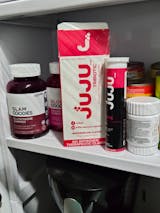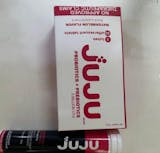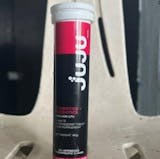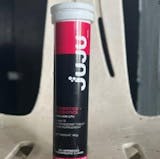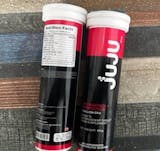Collagen supplements are everywhere, promising a fountain of youth. But with so much variation in dosage recommendations, it’s easy to feel overwhelmed. it’s the buzzword in the beauty and wellness world, wound healing, gut health, promising youthful skin, stronger joints, and healthier hair. But with so much information out there, it’s easy to get confused. The key question remains: how much collagen should you actually be taking each day?
In this blog post, we’ll explore the science behind collagen supplements. We’ll explore the recommended daily intake, depending on your specific goals. Whether you’re looking for a radiant complexion or improved joint health, we’ll help you navigate the world of collagen and find the right dosage for you.
IN THIS ARTICLE
16. Conclusion
The Essence of Collagen in Our Lives
Collagen, the most abundant protein in our bodies, acts as the glue that holds everything together. Made up of essential amino acids, collagen provides the structural support for our skin, muscles, bones, and even blood vessels. Think of it as the body’s scaffolding, keeping everything firm, elastic, and functioning optimally.
As we age, collagen production naturally declines. This can lead to a loss of skin elasticity, the appearance of wrinkles, and even decreased joint mobility. By incorporating collagen-rich protein sources into our diet or considering supplementation, we can support healthy aging and maintain a youthful vitality from the inside out.
How Much Collagen Do We Really Need?
Research has shown that adults can safely consume between 2.5 and 15 grams of collagen a day. Read the label on your supplement to see how much it contains. Many people take 1-2 tablespoons of collagen powder per day. While collagen is undeniably important, there’s no one-size-fits-all answer to how much you actually need. The recommended dosage can vary depending on several factors:
- Age: Collagen production naturally declines with age. So, someone in their 20s might not require as much as someone in their 50s.
- Lifestyle: Factors like sun exposure and smoking can further degrade collagen. If you lead a particularly active lifestyle that puts stress on your joints, you might benefit from a higher daily dose.
- Health Goals: Are you primarily focused on improving skin health? Or are you hoping to alleviate joint pain? Different goals may require different daily doses of collagen.
However, it’s important to consult with a healthcare professional to determine the optimal dose for your individual needs and health goals. They can help you navigate the variety of collagen supplements available and ensure you’re getting the right amount for your specific situation.
TYPES OF COLLAGEN AND THEIR SOURCES
Collagen isn’t a one-size-fits-all protein. Nearly 28 types of collagen have been identified, but collagen type I is the most common in skin, bone, teeth, tendon, ligaments, vascular ligature, and organs. Collagen type II is present in the cartilages. For collagen type III, the skin, muscle, and blood vessels are the most common sources of this protein. Here’s a breakdown of some of the most common types and their natural sources:
Type I Collagen:
This is the most abundant form, making up about 90% of your body’s collagen. It provides structure to your skin, bones, tendons, and ligaments. Natural sources include bone broth and animal sources like beef, pork, and chicken skin.
Type II Collagen:
This type is found in elastic cartilage and is crucial for joint health. Chicken cartilage and fish are good sources of Type II collagen.
Type III Collagen:
This form supports the structure of muscles, blood vessels, and organs. You can find it in animal sources like beef, pork, and chicken.
Type V Collagen:
This type plays a role in cell surfaces, hair, and the placenta. Egg whites are a good source of Type V collagen.
It’s important to note that while consuming collagen-rich foods can be beneficial, your body doesn’t directly absorb collagen molecules from these sources. Instead, it breaks them down into amino acids, which it then uses to build its own collagen.
Supplements often contain hydrolyzed collagen, a form broken down into smaller peptides for easier absorption. These supplements can be derived from various animal sources, with bovine collagen being a common choice.
Knowing the different types of collagen and their sources can help you tailor your approach to supporting your body’s collagen production.
The Science Behind Collagen Absorption
Understanding how our bodies absorb collagen is key to maximizing its potential benefits. Collagen, in its whole form, is too large to be directly absorbed by the intestines. Instead, our digestive system breaks it down into individual amino acids, the building blocks of protein. These amino acids are then absorbed and used by the body for various functions, including collagen production.
However, here’s where hydrolyzed collagen comes in. This form of collagen is pre-digested into smaller peptides, which are essentially chains of a few amino acids. These smaller peptides are much easier for the body to absorb compared to whole collagen molecules. Studies suggest that specific collagen peptides can be incorporated more efficiently into certain tissues, potentially offering targeted benefits for skin, joints, or other areas.
While consuming collagen-rich foods can provide the amino acid building blocks, hydrolyzed collagen supplements offer a more direct way to increase the availability of specific collagen peptides in the body. This enhanced bioavailability is what makes them a popular choice for those seeking to support their collagen levels.
Collagen Daily Intake: Recommended Dosages
With all this talk about collagen, the big question remains: how much should you actually be taking each day? While research on optimal collagen intake is ongoing, recent studies and health expert recommendations suggest a range of:
- 2.5 grams of collagen per day for general support: This baseline amount may be beneficial for those looking to maintain overall collagen health and promote healthy aging.
- Up to 10 grams of collagen per day for targeted benefits: If you have specific goals in mind, like improving skin health or alleviating joint pain, a higher daily dose might be more effective. Studies have shown positive results with this range for these concerns.
- 15 grams of collagen per day may be used in specific cases, but consult a healthcare professional first: While some studies have explored this higher dosage, it’s important to proceed with caution. Always consult with a doctor before exceeding 10 grams daily, especially if you have any underlying health conditions.
Important Note: It’s crucial to remember that these are just general guidelines. The ideal amount of collagen for you can vary depending on several factors, including your age, overall health, and specific goals. Consulting with a healthcare professional is always recommended to determine the most appropriate daily dosage for your individual needs. They can help you navigate the different collagen supplements available and ensure you’re getting the right amount to maximize the benefits and avoid any potential side effects.
Benefits of Meeting Your Daily Collagen Intake
So, you’ve familiarized yourself with the different types, sources, and science behind collagen absorption. Now, let’s explore the potential rewards of meeting your daily collagen needs:
- Improved Skin Hydration and Elasticity: Collagen is a major component of the skin’s dermis, the middle layer responsible for plumpness and elasticity. Studies suggest that consuming collagen peptides can help increase skin hydration, reduce the appearance of wrinkles, and promote overall skin health.
- Enhanced Joint Health: Collagen is a key structural component of cartilage, the tissue that cushions your joints. Adequate collagen intake may help reduce joint pain and stiffness associated with conditions like osteoarthritis.
- Stronger Bones: Collagen plays a vital role in bone structure and density. Some studies suggest that collagen supplementation may help increase bone mineral density and reduce the risk of fractures, particularly in postmenopausal women.
- Potential Benefits for Muscle Mass: Collagen is an abundant protein found in muscles. While research is ongoing, some studies suggest that collagen peptides may aid in muscle growth and recovery after exercise.
- Healthy Hair and Nails: Collagen supports the health of hair follicles and nails. While more research is needed, some studies have shown promise for collagen in improving hair strength and promoting nail growth.
Remember, these are just some of the potential benefits associated with meeting your daily collagen needs. As research continues to explore the role of collagen in overall health, we may discover even more advantages of maintaining optimal collagen levels.
Collagen and Skin Health: A Deeper Look
When it comes to the benefits of collagen, one area stands out: skin health. Collagen plays a critical role in maintaining the structure and youthful appearance of our skin.
Think of collagen as the scaffolding that supports your skin. As the primary protein in the dermis, it provides elasticity and firmness, keeping your skin plump and youthful. However, collagen production naturally declines with age. This loss of collagen is linked to the development of wrinkles, fine lines, and a loss of overall skin suppleness.
Studies suggest that consuming collagen peptides, either through diet or supplementation, can offer significant benefits for skin health. Here’s how:
- Increased Skin Elasticity: Collagen peptides may stimulate the production of new collagen fibers in the skin, leading to improved elasticity and a reduction in the appearance of wrinkles and fine lines.
- Enhanced Moisture Retention: Collagen plays a role in skin hydration by attracting and retaining water molecules. Adequate collagen intake can help keep your skin hydrated and plump, giving it a youthful glow.
- Reduced Signs of Aging: By promoting both elasticity and hydration, collagen can help combat the visible signs of aging, leaving your skin looking and feeling younger.
While more research is needed to fully understand the mechanisms behind these benefits, the evidence suggests that collagen can be a valuable tool for promoting vibrant and healthy skin.
Collagen’s Role in Joint Health and Mobility
Collagen’s main role is to provide structure, strength and support throughout your body. Collagen’s impact goes beyond youthful skin. It plays a vital role in supporting our joints and maintaining mobility. Think of collagen as the glue that holds everything together in our musculoskeletal system. It’s a major component of cartilage, the flexible tissue that cushions the space between bones in our joints. It’s also found in tendons, ligaments, and other connective tissues that provide stability and support.
As we age, collagen production naturally decreases. This decline can contribute to the breakdown of cartilage, leading to conditions like osteoarthritis, characterized by joint pain, stiffness, and reduced mobility.
Studies suggest that consuming collagen, particularly Type II collagen found in cartilage, can offer significant benefits for joint health. Here’s how:
- Supporting Cartilage Health: Collagen peptides may stimulate the body’s production of new collagen, helping to repair and strengthen cartilage. This can lead to reduced pain and stiffness in the joints.
- Improved Joint Function: By promoting cartilage health and reducing inflammation, collagen intake may improve overall joint function and increase flexibility. This can lead to better mobility and a more active lifestyle.
- Strengthening Connective Tissues: Collagen provides structure and support to tendons and ligaments, which play a crucial role in joint stability. Adequate collagen intake can help maintain the strength and integrity of these tissues, potentially reducing the risk of injuries.
While collagen supplements may not be a cure-all for joint pain, research suggests they can be a valuable tool in supporting joint health, reducing discomfort, and improving mobility.
The Impact of Collagen on Hair and Nail Strength
Collagen’s benefits extend beyond just your skin and joints, reaching the very strands on your head and the tips of your fingers. Often referred to as the “hair, skin, and nails” complex, these tissues all share a common thread – collagen plays a vital role in their health and appearance. Taking collagen may increase the strength of your nails.
Hair and nails are primarily made up of a protein called keratin, which is itself built from amino acids. Collagen, being a rich source of these amino acids, provides the building blocks for healthy hair and nail growth. Here’s how collagen can benefit your hair and nails:
- Increased Strength: Collagen peptides may stimulate the production of keratin, leading to stronger, less brittle hair and nails. This can help reduce breakage and splitting, promoting overall hair and nail health.
- Enhanced Hair Growth: Some studies suggest that collagen peptides may improve hair follicle health, potentially leading to thicker, fuller hair and faster growth.
- Improved Hair and Nail Vitality: By providing essential amino acids and promoting healthy growth, collagen can contribute to the overall vitality of your hair and nails. This can result in hair that is shinier, smoother, and less prone to dryness, while nails become stronger and less likely to chip or crack.
Research in this area is still ongoing, the potential benefits of collagen for hair and nail health are promising. If you’re looking for ways to improve the strength, growth, and overall appearance of your hair and nails, incorporating collagen into your diet or routine might be worth exploring.
Balancing Collagen Intake: Foods vs. Supplements
With all this talk about collagen, you might be wondering: should you get your collagen from food sources or take a supplement? Both approaches have their own advantages and limitations:
Food Sources:
Benefits:
- Provides a wider range of nutrients alongside collagen, like vitamins and minerals.
- Can be a natural way to incorporate collagen into your diet.
- May be more cost-effective in the long run.
Limitations:
- The amount of collagen you get from food can vary greatly.
- Your body needs to break down food sources into amino acids before it can build collagen.
- May require consuming large quantities of certain foods, which can be challenging.
Collagen Supplements:
Benefits:
- Offer a more concentrated dose of collagen, making it easier to reach your daily needs.
- Often contain hydrolyzed collagen peptides, which are readily absorbed by the body.
- Convenient and easy to incorporate into your routine.
Limitations:
- Can be more expensive than getting collagen from food sources.
- May not provide the same range of nutrients as collagen-rich foods.
- It’s important to choose high-quality supplements from reputable brands.
Ultimately, the best approach for you depends on your individual needs and preferences.
Here are some things to consider:
- Dietary habits: If you already consume a lot of collagen-rich foods like bone broth or fatty fish, you might not need a supplement.
- Convenience: If you’re looking for an easy way to boost your collagen intake, supplements might be a good choice.
- Specific goals: If you have targeted goals like improving joint pain or boosting hair growth, certain types of collagen supplements might be more effective.
No matter which approach you choose, remember to consult with a healthcare professional before taking any new supplements. They can help you determine the best course of action for your individual needs and ensure you’re getting the right type and amount of collagen for your goals.
Understanding Collagen Supplementation
Collagen supplements may help promote the health of the skin and skeletal system and may help improve symptoms related to osteoarthritis. They’re considered safe on their own but may contain other ingredients that aren’t appropriate for everyone. Collagen supplements have become a popular choice for those seeking to support their body’s collagen levels. These supplements come in various forms, including powders, tablets, capsules, and even liquids, making them easy to incorporate into your daily routine. But with so many options available, it’s important to understand how effective they truly are.
Clinical studies have shown promise for collagen peptide supplementation, the most common form used in supplements. Hydrolyzed collagen peptides are smaller, more easily absorbed versions of collagen that can target specific areas of the body. Research suggests these peptides may stimulate the production of new collagen or provide the building blocks for your body to create its own.
While more research is needed to fully understand the long-term effects of collagen supplementation, current studies indicate it can be a safe and effective way to increase your collagen intake. However, it’s important to remember that supplements are not a magic bullet. They work best alongside a balanced diet rich in collagen-promoting foods and a healthy lifestyle.
How to Choose the Right Collagen Supplement?
With many of collagen supplements available, navigating your options can feel overwhelming. Here are some key tips to help you select a safe and effective product:
- Consider Your Needs: Different types of collagen target different areas. If you’re focused on skin health, look for supplements containing Type I collagen peptides. For joint support, Type II collagen might be more beneficial. Consult a healthcare professional to determine the best type for your goals.
- Source Matters: Opt for supplements derived from reputable sources like grass-fed, pasture-raised animals or wild-caught fish. This can help ensure the quality and safety of the collagen.
- Focus on Ingredients: Look for supplements that contain only hydrolyzed collagen peptides and minimal fillers or additives. Avoid products with added sugars, artificial flavors, or unnecessary ingredients.
- Check for Certifications: Look for third-party certifications from reputable organizations like NSF International or USP (United States Pharmacopeia). These certifications indicate that the supplement has been tested for purity and potency.
- Research the Brand: Choose a brand with a good reputation and positive customer reviews. Look for companies that are transparent about their sourcing and manufacturing processes. Consider brands that have undergone clinical studies on their specific collagen products.
- Read the Dosage: Follow the recommended dosage on the product label. Remember, more isn’t necessarily better. Consult a healthcare professional for personalized guidance on dosage based on your individual needs and health goals.
- Price vs. Value: Collagen supplements can range in price. Don’t get swayed by the cheapest option. Look for a balance between affordability and quality.
By following these tips and consulting with a healthcare professional, you can make an informed decision and choose the right collagen supplement to support your overall health and well-being.
Incorporating Collagen into Your Daily Routine
So you’ve decided to explore the world of collagen supplementation! Here are some tips to seamlessly integrate your daily dose into your routine and maximize its potential benefits:
- Mix it Up: Collagen supplements come in various forms – powders, capsules, liquids. Choose a format that suits your preference. Powdered collagen can be easily mixed into smoothies, coffee, tea, or even yogurt. Liquids can be taken as a standalone shot or added to your favorite beverage.
- Morning Boost: Many people find incorporating their collagen in the morning routine convenient. Adding it to your breakfast smoothie or coffee can be a simple way to start your day.
- Snack Time Addition: Collagen peptides are generally tasteless and odorless, making them easy to incorporate into snacks. Consider mixing a scoop into oatmeal, yogurt parfaits, or protein shakes.
- Soup it Up: For those who enjoy savory options, consider adding collagen powder to soups, stews, or broths. The heat won’t harm the peptides, and it can add a slight thickening effect.
- Listen to Your Body: While some studies suggest benefits with a single daily dose, some people may find taking smaller doses spread throughout the day works better. Experiment and see what feels best for you.
- Consistency is Key: Like any supplement, consistency is crucial to see results. Aim to take your daily dose consistently for at least 12 weeks to allow your body time to accumulate the benefits.
Remember, incorporating collagen is just one piece of the puzzle. Maintaining a balanced diet rich in collagen-promoting foods and a healthy lifestyle with regular exercise will further support your overall health and well-being.
Overcoming Common Collagen Intake Challenges
Even with the best intentions, maintaining a consistent collagen intake can have its hurdles. Here’s how to overcome some common challenges:
- Taste and Texture: Some people find collagen powders unpalatable. Solution: Explore flavored collagen options or mix them into beverages or foods you already enjoy.
- Finding the Right Form: Not everyone enjoys powders. Solution: Consider capsules, liquids, or even collagen-infused snacks for a more convenient option.
- Dietary Restrictions: Vegan or vegetarian diets may limit access to collagen sources. Solution: Look for collagen supplements derived from marine sources or explore plant-based alternatives rich in the amino acids needed for collagen production.
- Forgetting to Take It: Busy schedules can lead to missed doses. Solution: Set reminders on your phone, incorporate it into your existing routine (like taking it with your morning coffee), or use a pill organizer.
- Cost Concerns: Collagen supplements can be expensive. Solution: Consider buying in bulk or look for deals and promotions. Remember, quality matters, so focus on finding a good value rather than just the cheapest option.
- Potential Side Effects: While generally safe, some people may experience digestive issues or skin reactions. Solution: Start with a lower dose and gradually increase it. If side effects persist, discontinue use and consult a healthcare professional.
- Underlying Health Conditions: Certain health conditions may require caution with collagen intake. Solution: Always consult your doctor before starting any new supplement, especially if you have any pre-existing health concerns. They can advise you on the safety and appropriate dosage for your individual needs.
By acknowledging these challenges and finding solutions that work for you, you can ensure consistent collagen intake and maximize the potential benefits for your overall health and well-being. Remember, maintaining a well-balanced diet rich in indispensable amino acids, regardless of your collagen intake method, plays a vital role in supporting your body’s natural collagen production.
Frequently Asked Questions
Is collagen safe to take every day?
Collagen is generally considered safe for most healthy adults when taken at recommended doses. However, it’s always best to consult with your doctor before starting any new supplement, especially if you have any underlying health conditions.
What are some telltale signs I need more collagen?
Dry skin, wrinkles, joint pain, and weak hair and nails can all be indicators of declining collagen levels. However, these can also be symptoms of other underlying health issues. Consulting a doctor for proper diagnosis is recommended.
Can I get enough collagen from my diet alone?
You can get some collagen from consuming bone broth, fatty fish, and other collagen-rich foods. However, it can be challenging to consistently consume enough of these foods to meet your daily needs. Supplements offer a more concentrated and convenient way to boost your collagen intake.
Are there different types of collagen supplements?
Yes, there are different types of collagen, with the most common being Type I, II, and III. Type I focuses on skin health, Type II targets joints, and Type III supports muscle and blood vessel health. Some supplements contain a blend of types for overall benefits.
How long does it take to see results from taking collagen?
Results from collagen intake can vary depending on the individual and the dosage. Studies suggest it can take anywhere from 8-12 weeks to see noticeable improvements in skin health, joint function, or hair and nail growth. Consistency is key!
Conclusion
Throughout this exploration of collagen, we’ve learned the science behind its absorption, the potential benefits of meeting your collagen daily intake, and various factors influencing your ideal dosage.
Remember, collagen is a vital protein that plays a key role in supporting our skin health, joint function, and overall well-being. As we age, our natural collagen production declines. Understanding this and potentially incorporating sufficient collagen, either through dietary sources or safe and effective supplements, can be a valuable tool in promoting healthy aging.
While more research is ongoing to fully explore the long-term effects of collagen supplementation, current studies suggest it can be a safe and effective way to boost your body’s collagen levels and support various health goals. Consulting with a healthcare professional can help you determine if collagen supplementation is right for you and establish a personalized plan to optimize your collagen daily intake for vibrant skin, healthy joints, and a strong foundation for overall wellness.


